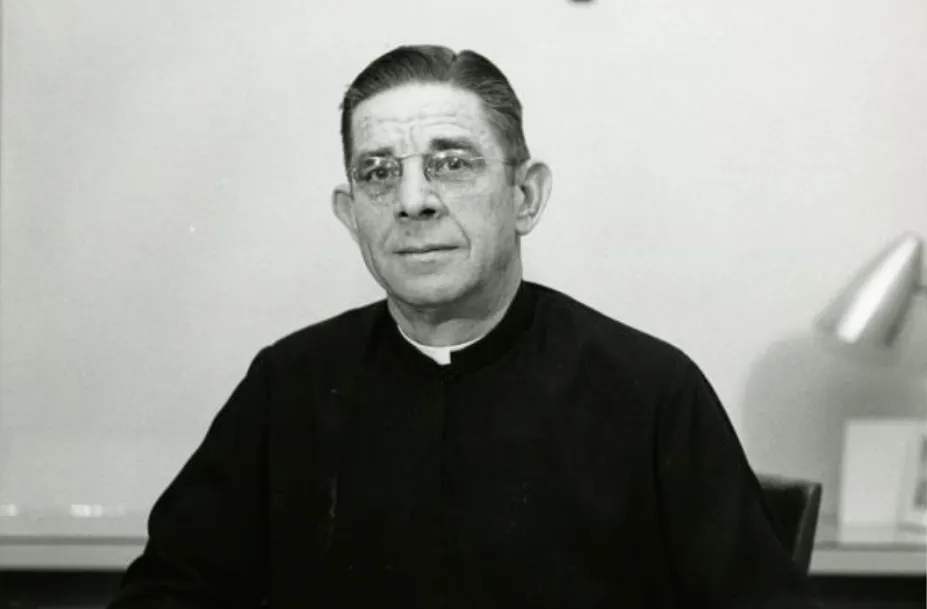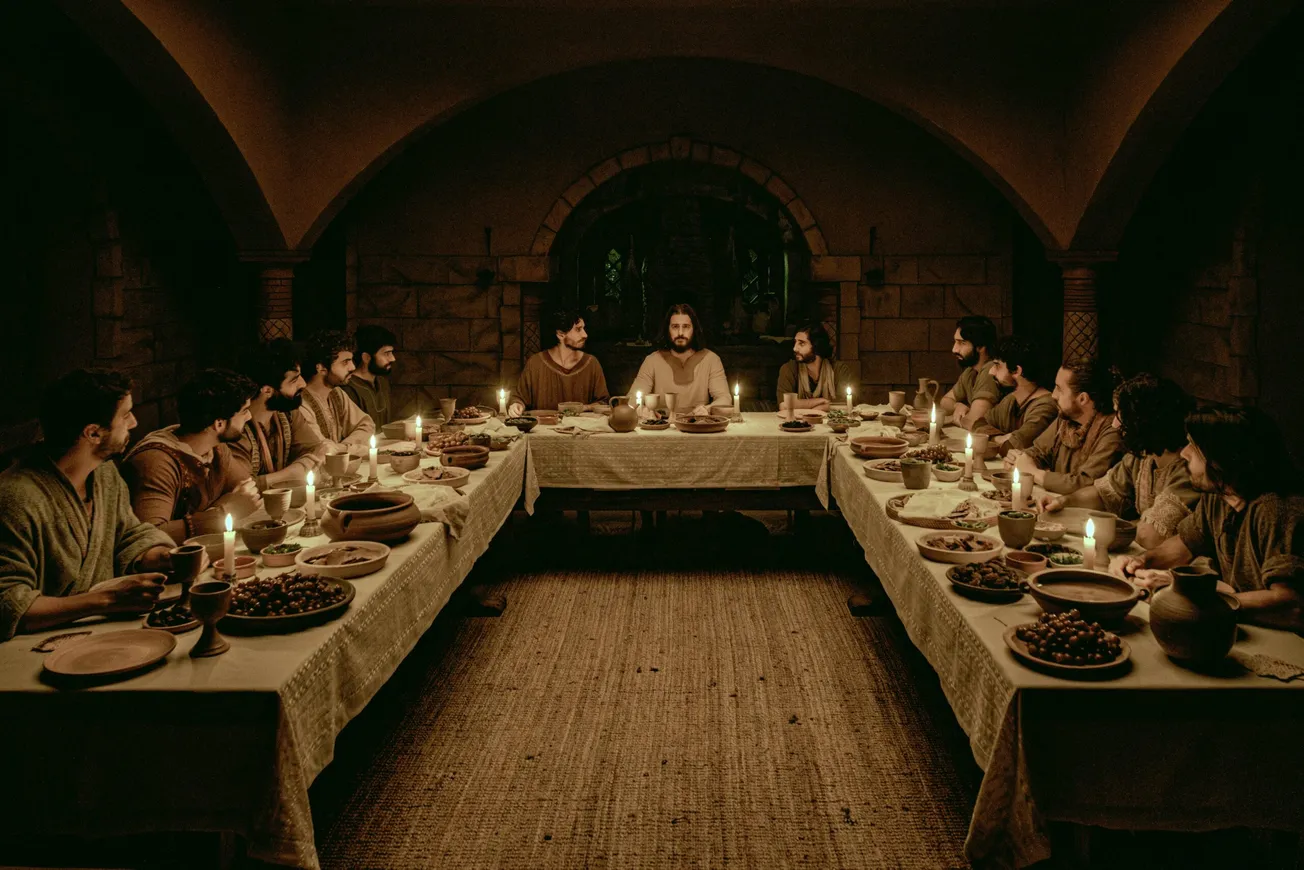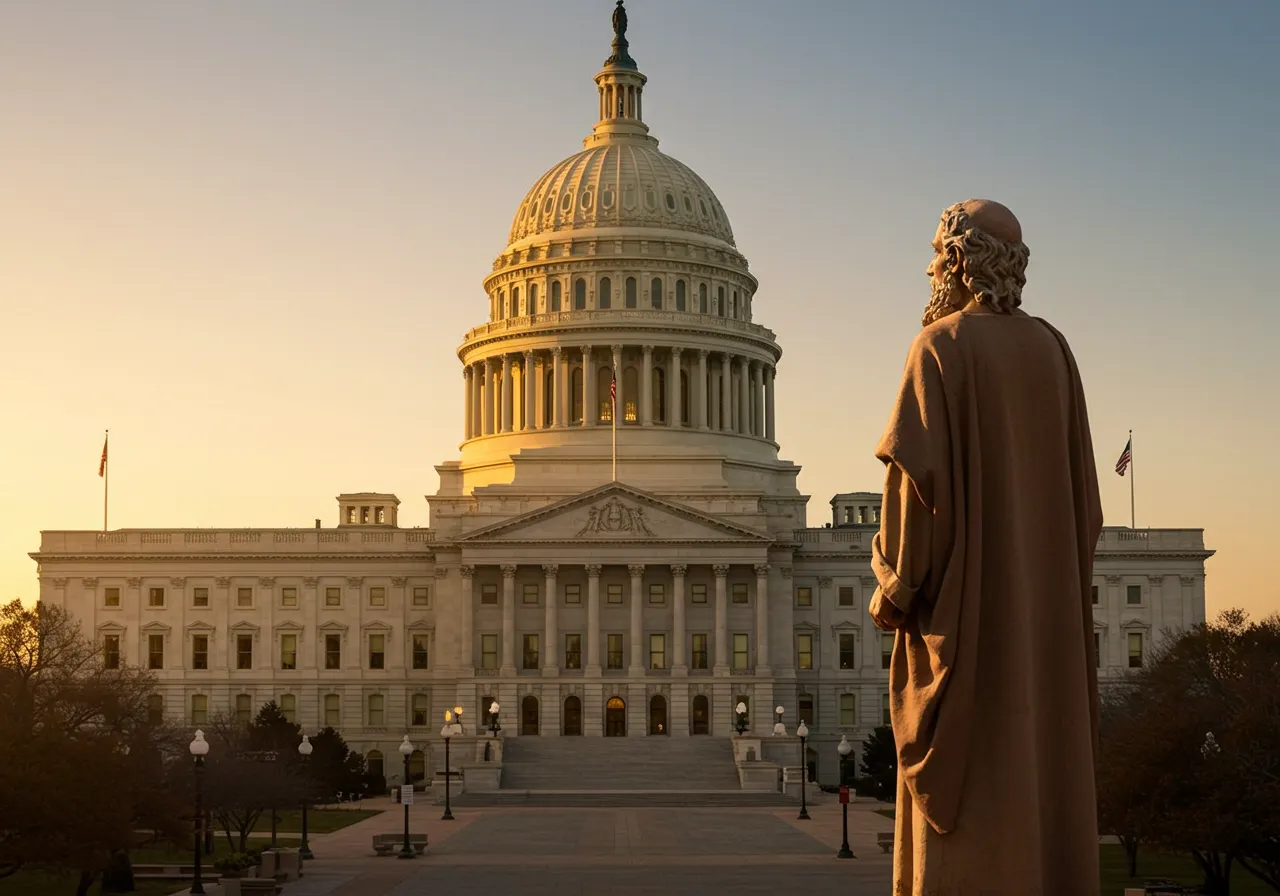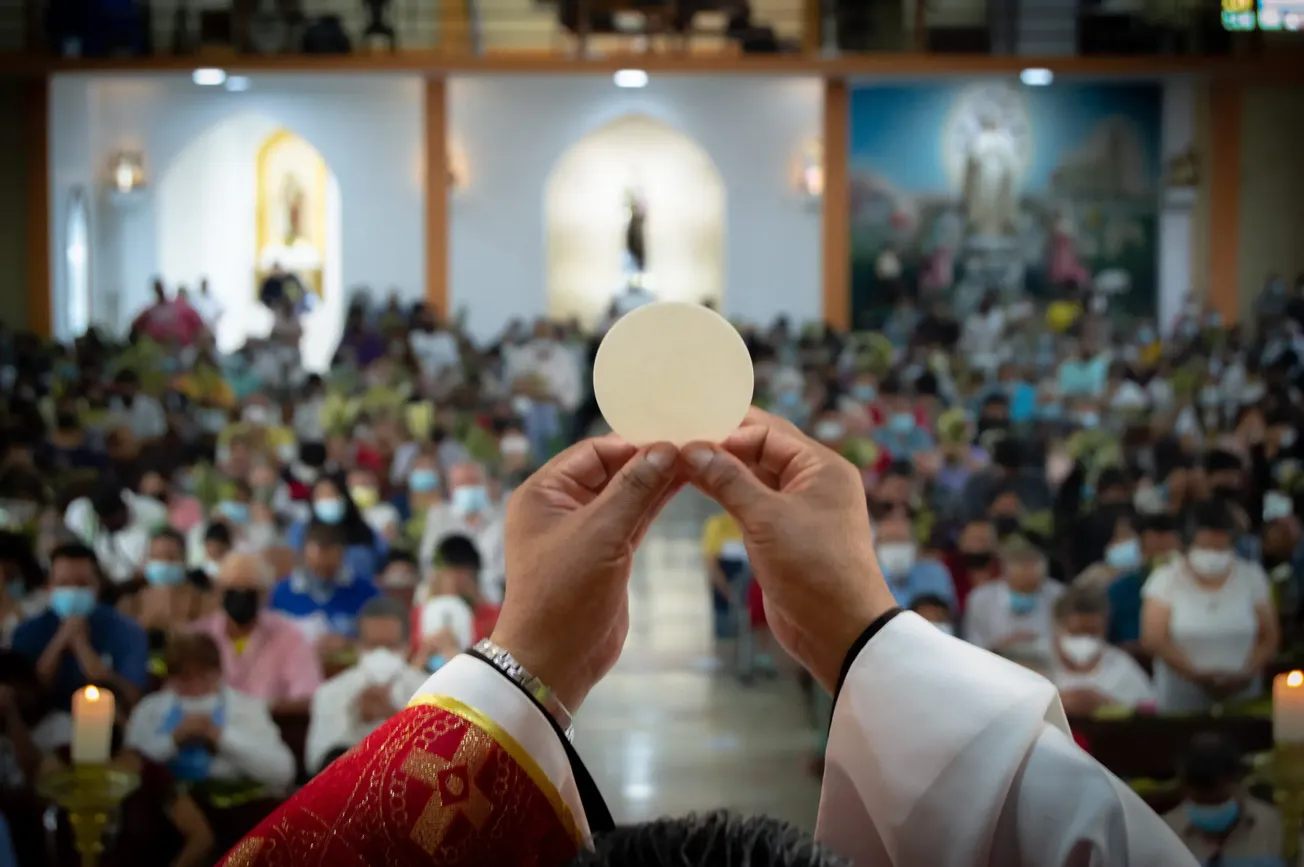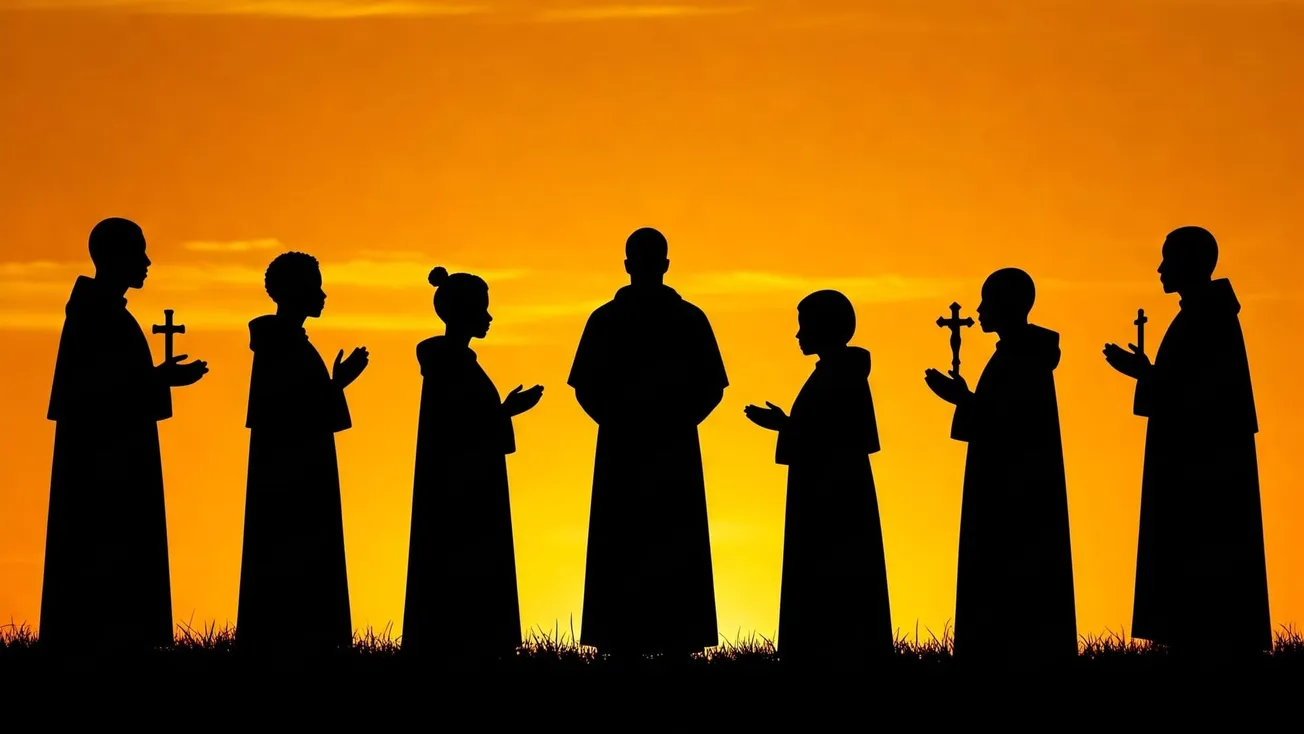For the past year, I have been researching the life of a remarkable Southern Jesuit who prodded his religious order to end its racial discrimination and embrace the cause of civil rights.
From 1948 until his death in 1969, Fr Louis J. Twomey published a newsletter out of Loyola University New Orleans, “Christ’s Blueprint for the South,” to educate his fellow Jesuits on Catholic social teaching and challenge them to put it into practice. He also befriended numerous labor and civil rights activists and, as I have discovered, was the first Catholic ally of Dr. Martin Luther King Jr.
Twomey’s trailblazing work led then Jesuit superior general, Fr Pedro Arrupe, to summon him in 1967 to help draft The Interracial Apostolate, a letter that brought the Society of Jesus’s ministry to African Americans into the modern era.
This week, I launched a Kickstarter to raise funds to carry me through the writing phase of the biography, which is to be published by Notre Dame Press as “A Priest in Good Trouble: Father Louis J. Twomey, S.J.’s Battle for Human Dignity with MLK in the Deep South.”
Here's a taste of my @Kickstarter video on A Priest in Good Trouble: Father Louis J. Twomey, S.J.’s Battle for Human Dignity with MLK in the Deep South, the book I'm writing for @UNDPress.
— Dawn Eden Goldstein, JCL, SThD ❤️🔥 (@DawnofMercy) August 5, 2024
Watch the rest at https://t.co/XLqyME0YiK . pic.twitter.com/wtiwGKSeRZ
To show why I believe Twomey’s story is important for a proper telling of the Catholic Church’s role in civil-rights history, I would like to share an excerpt from a previously unpublished interview with a Black academic-activist, Dr. Daniel C. Thompson (1912–1988), who collaborated with him for two decades. Thompson, whose books include “The Negro Leadership Class” (published in 1963 with a foreword by King), was a professor of sociology at Dillard University, a historically Black university in New Orleans, for 35 years.
The Jesuit priest John Robert Payne interviewed Thompson in 1974 for a dissertation he was writing on Twomey. This year, to assist me in my research, Payne generously provided me with his transcript of the interview, which—apart from a few quotes used in the dissertation—has never appeared anywhere in print. It is invaluable for the perspective it provides on how Twomey was viewed by the Black community in New Orleans, including those who, like Thompson, were not Catholic.
The following quotations are just a small part of Thompson’s recollections. I have omitted Payne’s questions to put it in the form of an oral history. In addition, I have made slight edits for clarity and used brackets to insert my best guesses at words missing from the transcript.
Dr. Daniel C. Thompson (1974):
I think that the most significant thing about Fr Twomey’s life for me and perhaps for New Orleans was not so much what he did, and he did a great deal, but the time at which it was done. I got to know him when the Blacks throughout the South were almost completely disenfranchised politically. They had almost no power.
It is very difficult to explain how 30 percent of the population of a state like Louisiana, or 26 to 30 percent of the population around the South, who had every constitutional right to be first-class citizens, were almost totally powerless. No leverage politically, economically, or otherwise. The only weapon was protest. And it was easy, very easy, after many decades of this, to become demoralized—to give up hope. And I think, if there’s any great lesson to be learned about Blacks in America, it is not necessarily their accomplishments but the fact that they never gave up hope when everybody else should have given up hope…
They were really rough days, and it was on this scene that Fr Twomey came. We needed somebody to speak to the mayor of this city. Somebody who could speak to people in power. And there were very few people who were [doing] this.
I wrote a book during this time called “The Negro Leadership Class,” and I have a section there on the plight of the liberal. People who were liberal before 1954 [the year of Brown v. Board of Education] ceased to be liberal and really ceased activity after 1954, and the reason was clear. Before 1954… they were people who championed equal employment [and schooling] in a segregated society…. But after 1954, to be liberal then meant that you were fighting not for equality in a segregated society, but for desegregation. And that’s when almost all the liberals left the field.
It was almost fantastic how they ran. Before then, they were all available to serve on the boards of directors of the Urban League and the NAACP and the other Black organizations, and they would appear on the platforms of national meetings—but not after 1954.
But one of the persons who renewed his effort after 1954 was Fr Twomey. And so, unless you understand the time that he did it, then what he did will not mean anything. It meant a time when there was nobody else to speak. He was really about the only—and this is a terrible thing to say—he was the most distinct Black voice that the Black community had in the Catholic [community]. By no means could he be called a militant. But he was the only voice, and he said what he believed to be right…
The Black community began to think of him as sort of their priest, and it was so utterly city-wide and not [just] church-wide. There was, for example, the Coordinating Council of Greater New Orleans, which was a tremendous organization. We wanted a guest speaker on Dillard’s campus, and we had two- or three-day meetings, and of course Fr Twomey was always there… He troubled the conscience of the people and he never let them rest, wherever he was… He didn’t browbeat anybody. He didn’t tell people, “You’re wrong; you ought to change.” He simply stood for what he stood for, and you couldn’t be in his [presence] and be a racist or bigot on any basis… I just don’t believe anybody ever sat in his presence and talked about Jews or Blacks or Spanish-Americans or even Germans, really. I think this is what he did: he revealed to us our littleness in these things, without preaching to us…
And he associated with so many people; you have to understand that. I mean, labor [unions] and housewives. Just getting his schedule of the people he saw in one day would be revealing—all kinds of people in even one day’s time. I remember meeting with him at A. L. Davis’ Baptist church one day, talking to these people who were worried about a hundred Black families having been cut off welfare during this time, and he was down there to give his advice about what needed to be done.
Fr Twomey, in his identification with mankind and not with any one [group], was always 100 percent Catholic… There was no time I ever heard him speak that he did not speak as a Catholic, and that was a very interesting thing about him. His speaking as a Catholic did not make me feel uncomfortable as a non-Catholic. His speaking as a White man did not make me feel uncomfortable as a Black man. I think that there’s a genius in that. He respected what I am and assumed that I respected what he was—that he did not expect me to be White or Catholic, and he assumed that I did not expect him to be Black or Protestant.
I think that, somehow, if you could interpret this [attitude], it’s a lesson to all of us, that there was no apology about this. He felt perfectly free to criticize the Black Baptists for not doing more, and in the same breath he would criticize the White Catholics for not doing more. I thought it was amazing. It’s like “Black is beautiful”; to him, Catholicism was beautiful. But it did not mean that other people who were not Catholic weren’t. To me, this is the most complex thing about him. But if you could understand that, I believe it’s the key to what he was.
Dawn Eden Goldstein, JCL, STD, is the author of several books, including the Christopher Award-winning biography "Father Ed: The Story of Bill W.'s Spiritual Sponsor." She lives in Washington, D.C.


